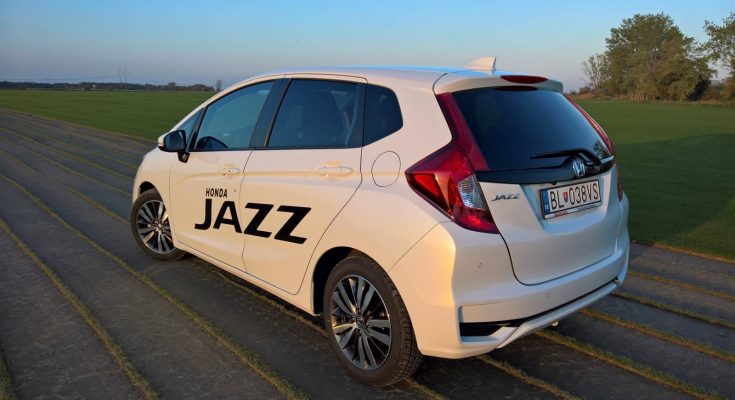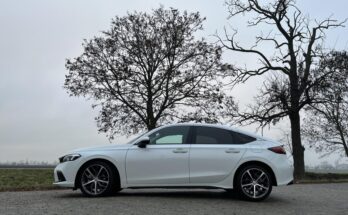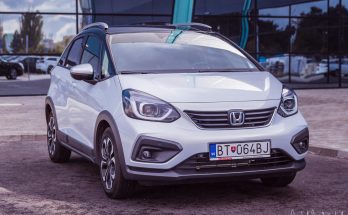Honda has just revealed the all-new 2020 Jazz, which for the first time will feature a two-motor hybrid powertrain as standard and will be the first Honda model in Europe to carry the new ' e:HEV ' powertrain badge. This means that from next year you will no longer buy a new Jazz with a classic gasoline engine, but only its hybrid version. We therefore have one of the last opportunities to test a "classic" with an atmospheric high-speed i-VTec engine.
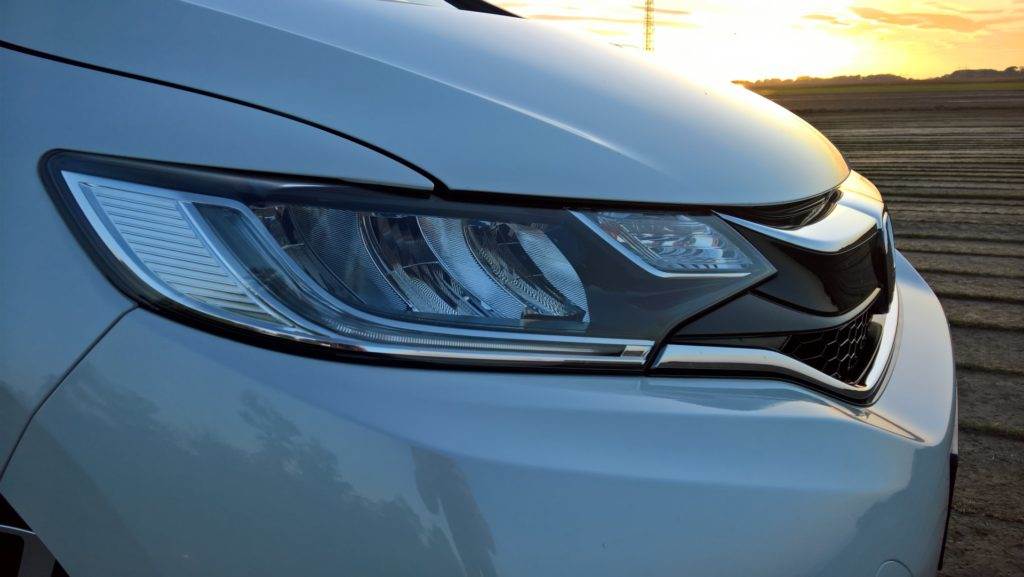
Jazz has been on the European market since 2002, and the tested third generation has been here since 2015. Although it has brought a more distinctive design, it still retains its MPV appearance and, above all, functionality, which, despite its small external dimensions, brings an above-average interior space. It's such a small-big car.
I took over the currently tested model in Elegance equipment with a beautiful white "Platinum White Pearl" metallic finish without any major expectations. The design may not suit everyone, and the Jazz never attracted me much with its appearance. But in the category of small MPVs, you can't think of much. You have to work with the possibilities that determine the interior space. And that's what it's all about here in the first place…
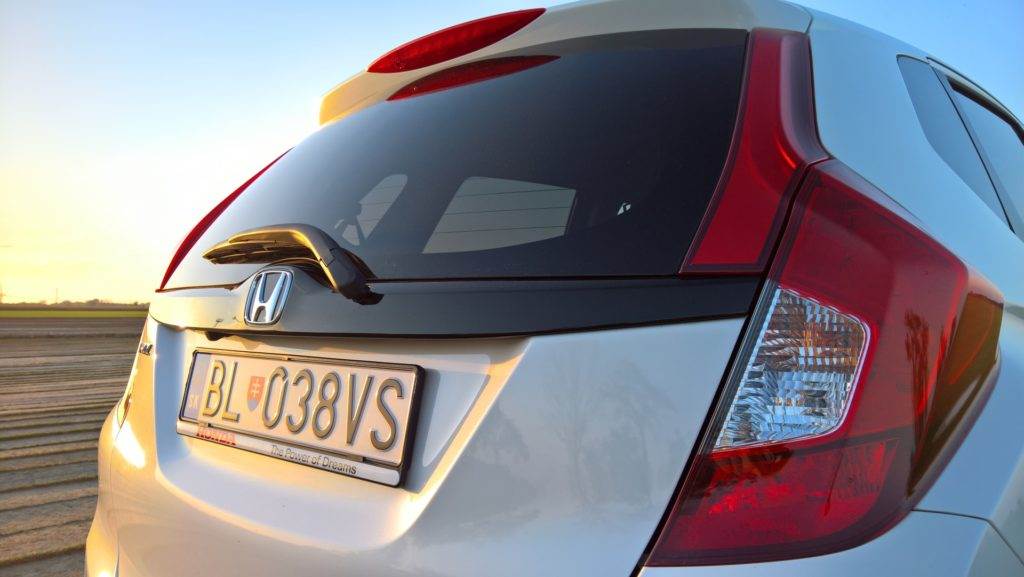
After the facelift, the Jazz has a nicer front, where the black radiator grille is in contrast with the chrome bars that extend into the front LED lights and looks a bit more aggressive than before. From the back, it has larger lights that extend to the upper edge of the trunk door and are thus better visible to vehicles in the distance. From the side, the wedge-shaped shape of the single-compartment body with a very short front part and almost no overhangs stands out. The short front hood is in line with the windshield, which is very oddly shaped and is apparently completely straight at the bottom (at least it appears that way from the driver's position).
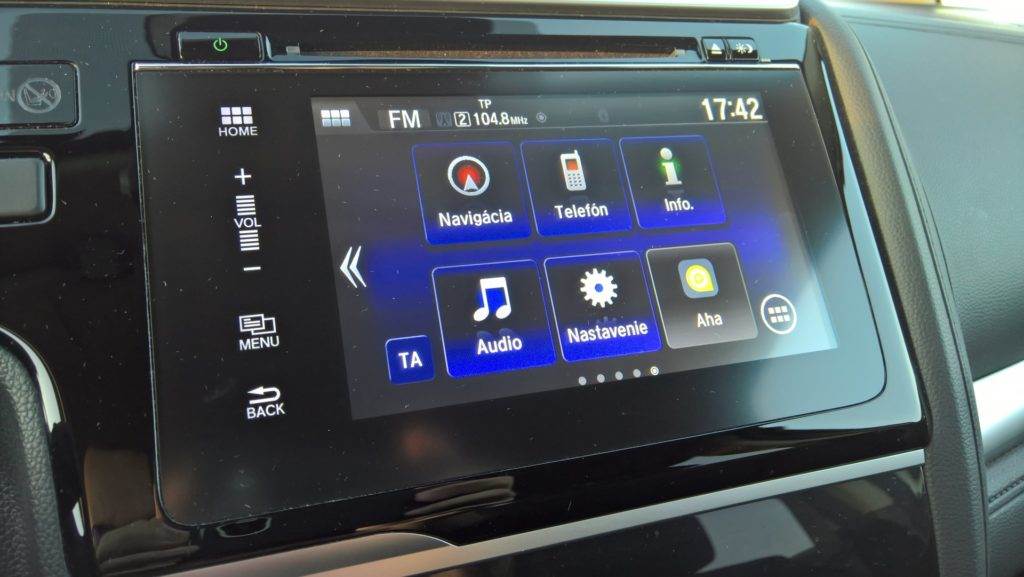
There were no major changes in the interior. There's a new infotainment screen that already supports both AndroidAuto and Apple CarPlay, and yes, it's still a bit sluggish. A little more. It really amazes me why such an advanced car company can't deliver a system that would achieve the reaction times of at least worse competition. It also does not greatly affect the ergonomics of the controls, so there would still be room for improvement.
However, the driver's workplace is exemplary. The central speedometer is large and beautifully readable. It is seconded by the tachometer and on-board computer display with switches on the excellent steering wheel. It fits well in the hand, has everything beautifully intuitive within reach and is a joy to twist with it. It sits more upright and the seat could use a few cm in length. Otherwise, I didn't have a problem and the lateral guidance is also decent here. Sitting on your own is difficult even in some mid-range vehicles, but not in the Jazz. Here, with my height of 186 cm, after sitting behind the driver's seat, there was still a good 10 cm left in front of my knees. Who does not see this with his own eyes – will not believe. Add to that the Magic-seats, which turn the Jazz into a small van when folded flat, or a tall transporter on an oleander in large pots when folded up, and we have a car with endless transport possibilities.
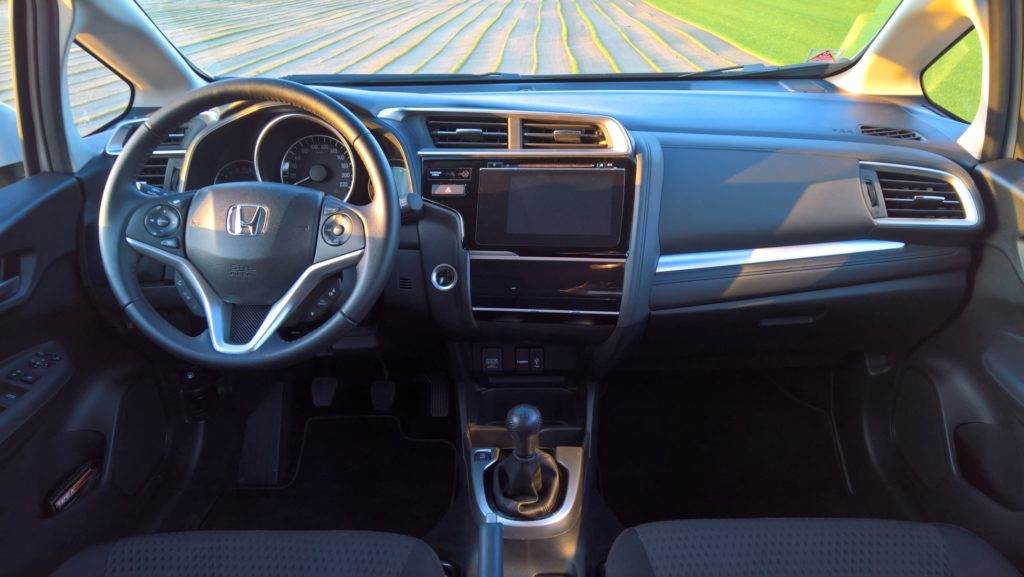
As far as assistance systems are concerned, the Jazz scores here and even in the lowest equipment it has a System for active braking in city traffic up to 30 km/h (City Break Active System), automatic wipers with a rain sensor and automatic lights. From the second trim level, there is the ADAS safety package. It contains a set of advanced assistants, led by Warning systems against a frontal collision or unintentional lane departure, or the Traffic Sign Recognition System is coupled with an intelligent speed limiter. We also find the ABS anti-lock braking system, brake force distributor, brake assist, stabilization system, hill start assist and tire pressure drop warning system. This equipment brings the Jazz closer to competition from higher segments.
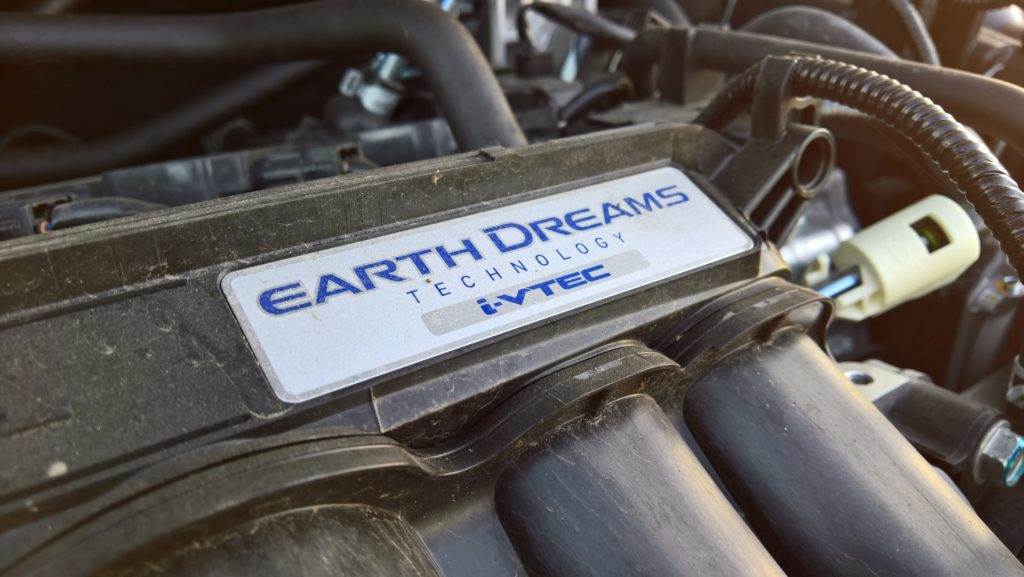
But let's get to the most important thing, why we are testing this "last" edition of Jazz. It is an atmospheric four-cylinder with a volume of 1318 cubic centimeters and it produces 75 kW (102 hp) at 6000 rpm. The maximum torque of 123Nm reaches up to the limit of 5000 rpm. Although it is no longer the classic VTec of the old school, where after switching the cam, a kick came and like with a turbo, but it is an engine with two faces.
It can be driven at very low revs, where it picks up very reluctantly and accelerates very weakly, but it will repay you with consumption well below the 5L/100km mark. Actually, I managed to consume 3.6L/100km on one trip through the districts (approx. 100km). In the city, with the help of the Start/Stop system, it obediently switches off at every opportunity, it is exemplary quiet, and the indicator around the speedometer alarm clock always shows how you are doing with driving economy. When driving calmly up to 2000 rpm. you will feel like you are in an electric car. The Jazz is very well insulated from both the engine and the chassis, and aerodynamic noise at highway speeds is not a problem.
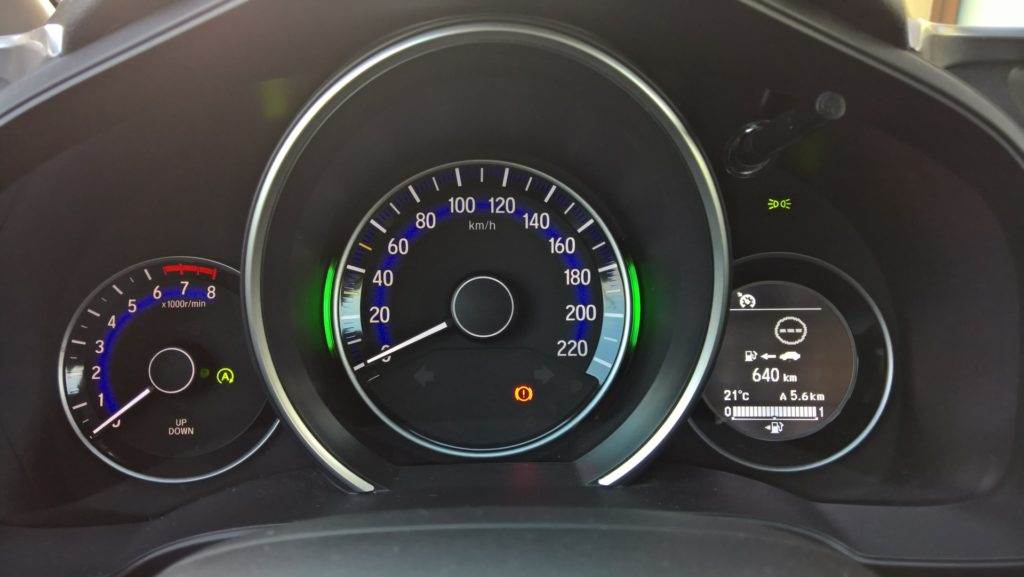
Its other face is revealed when downshifting and driving the revs somewhere beyond 5500, and that's when the real fun begins. It's not that it's a hothatch and it can't even be played with its performance parameters, but it's quite lively and can pick itself up to accelerate even at higher speeds. Of course, always with the typical sound of an angry vacuum cleaner. Surprisingly, even with such occasional excesses, the tank does not overflow even with the washer container. Even with sharp driving and more than freeway speeds, you won't look past the figure of 6.5L/100km, which small, worn-out three-cylinders can only imagine with the same treatment.
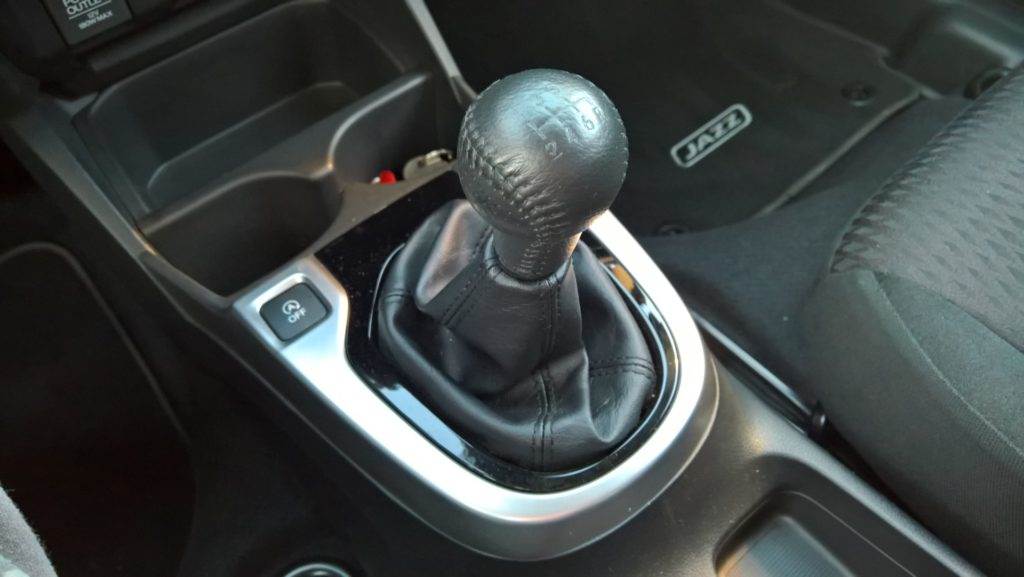
The transmission paths are short and precise, and the lever goes to the stops very easily. And for reverse, you don't have to pull or push anything, you just have to shift right to reverse, as we were used to with 5-speed gearboxes. However, you don't have to worry about putting it into gear while driving instead of 6 – Jazz has enough intelligence for that and won't let you go to it.
The driving characteristics of the Jazz are not bad at all. Not that they should be, but with this category and a similar car, it probably doesn't matter to the target group of potential customers. The chassis is stiffer and slight tilts during fast cornering are not completely eliminated, but in cooperation with the fantastic response from the wheels and great shifting, the Jazz is quite fun to drive.
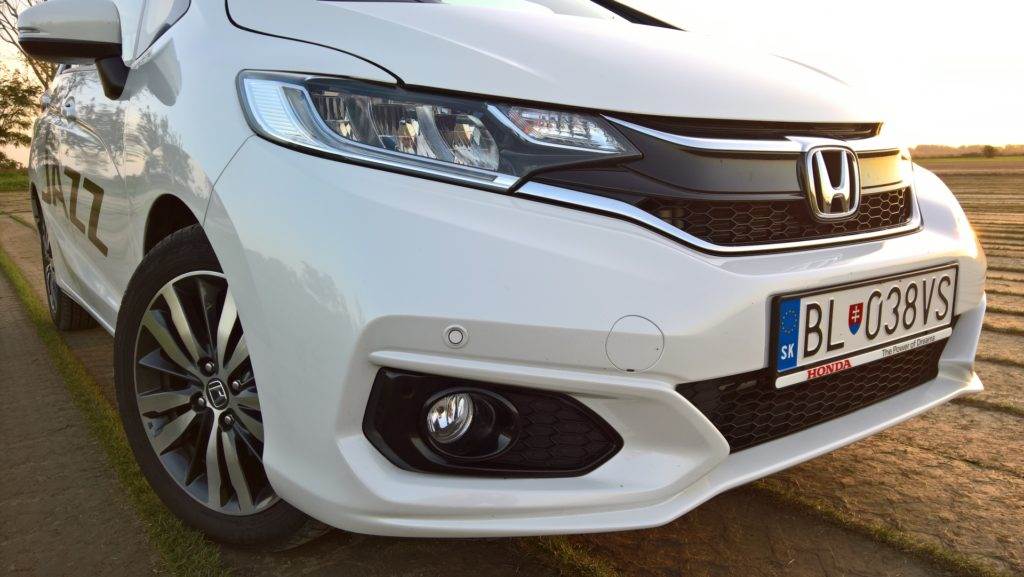
So, if you are currently looking for a second car for the family, a stroller for your wife or a small-large car for everything and the priority is a classic drive, reliability and low consumption – the current Jazz is perfect for you. For prices starting at €12,990, you can get a car that will either serve you until the end or sell it after x-years for a decent price…
| Technical specifications | Honda Jazz 1.3 i-VTec |
| Engine type: | Spark plug |
| Cylinders / valves: | 4 / 16 |
| Displacement (ccm): | 1 318 |
| Highest power (kW(k) / rpm) | 75 (102) / 6000 |
| The highest twist. torque (Nm / rpm): | 123 / 5000 |
| Gearbox: | 6-st. manual |
| Acceleration 0 – 100 km/h (s): | 11.4 |
| Combined consumption – WLTP (l/100 km): | 4.5 – 6.2 |
[rl_gallery id=”7289″]

